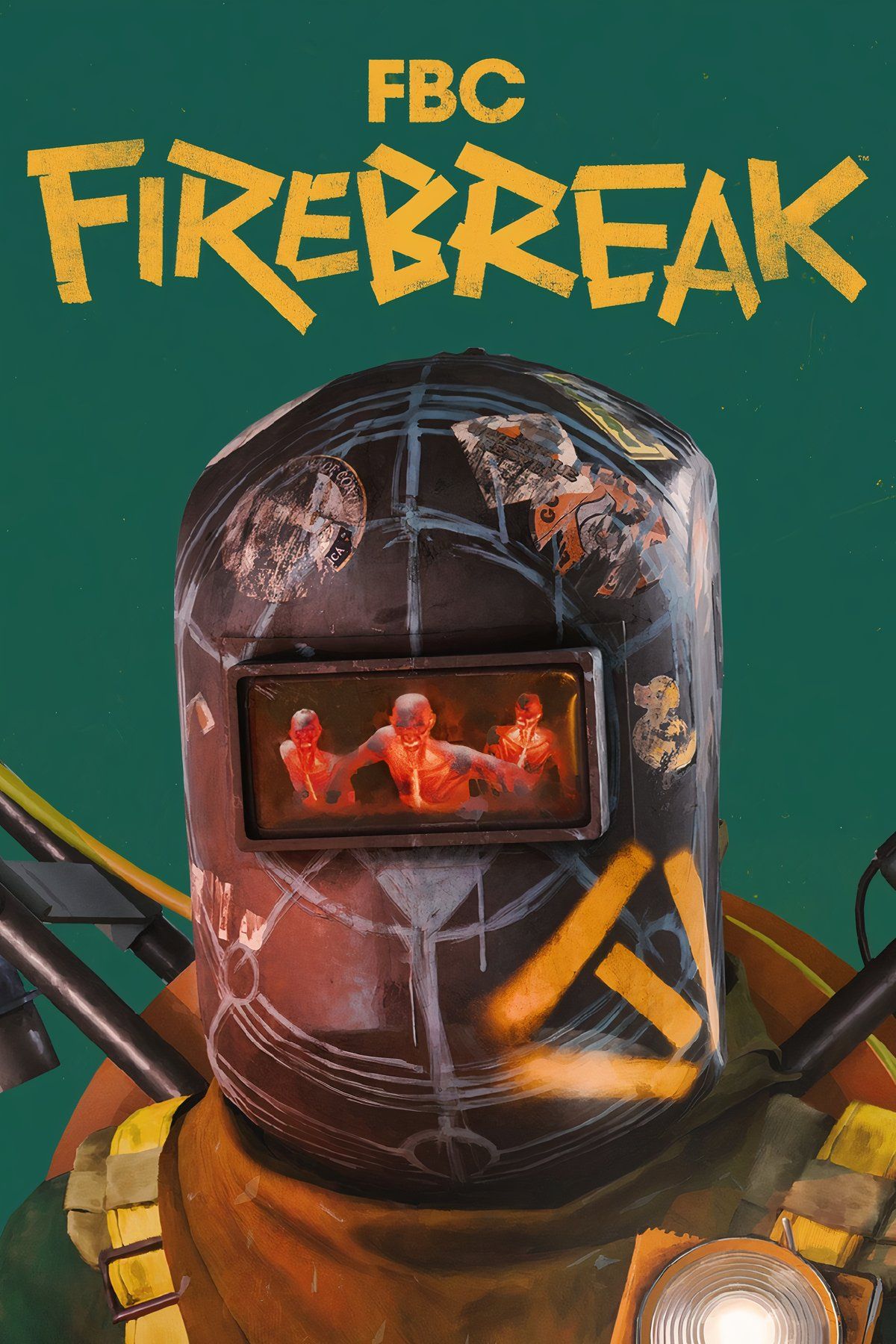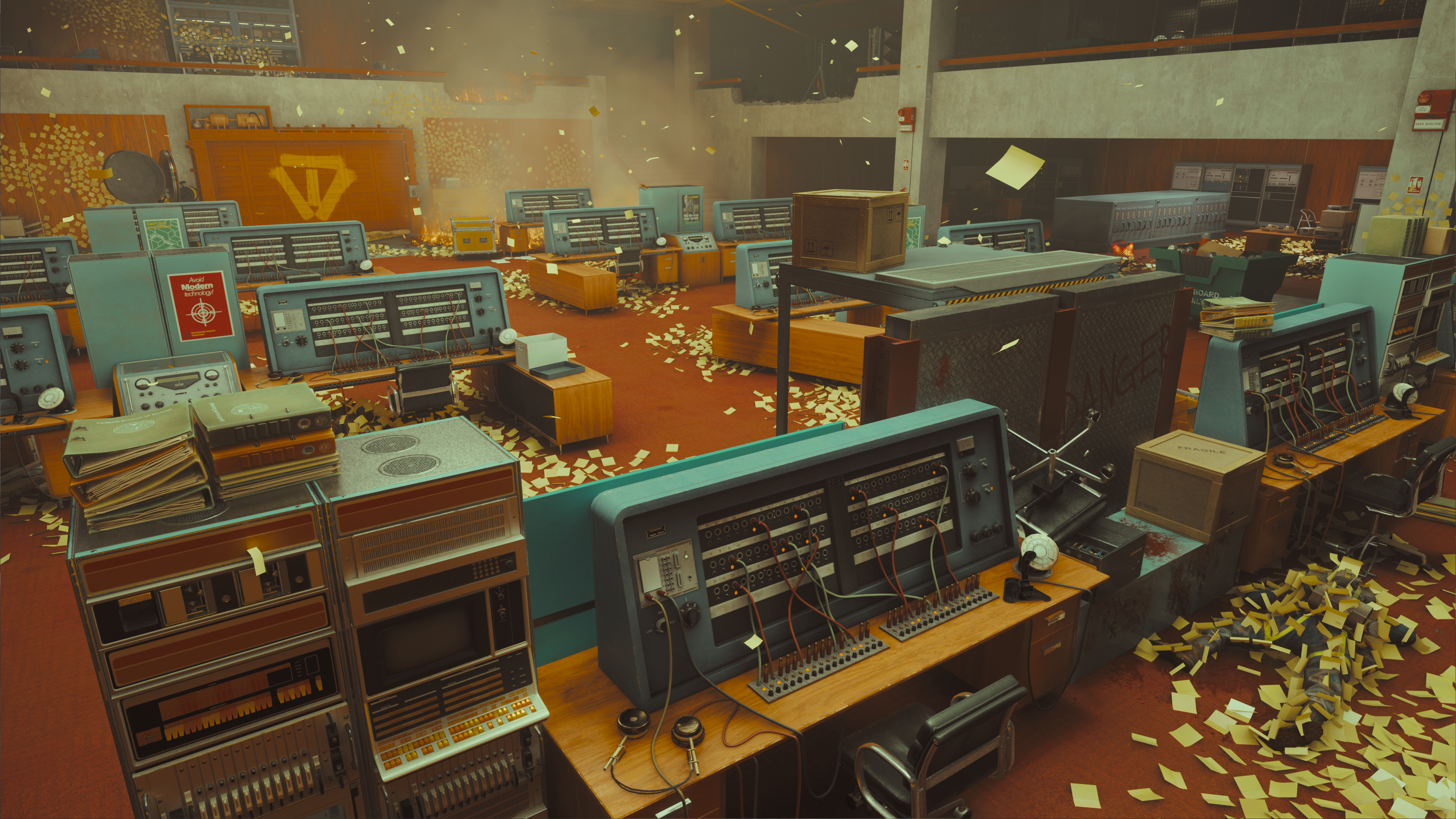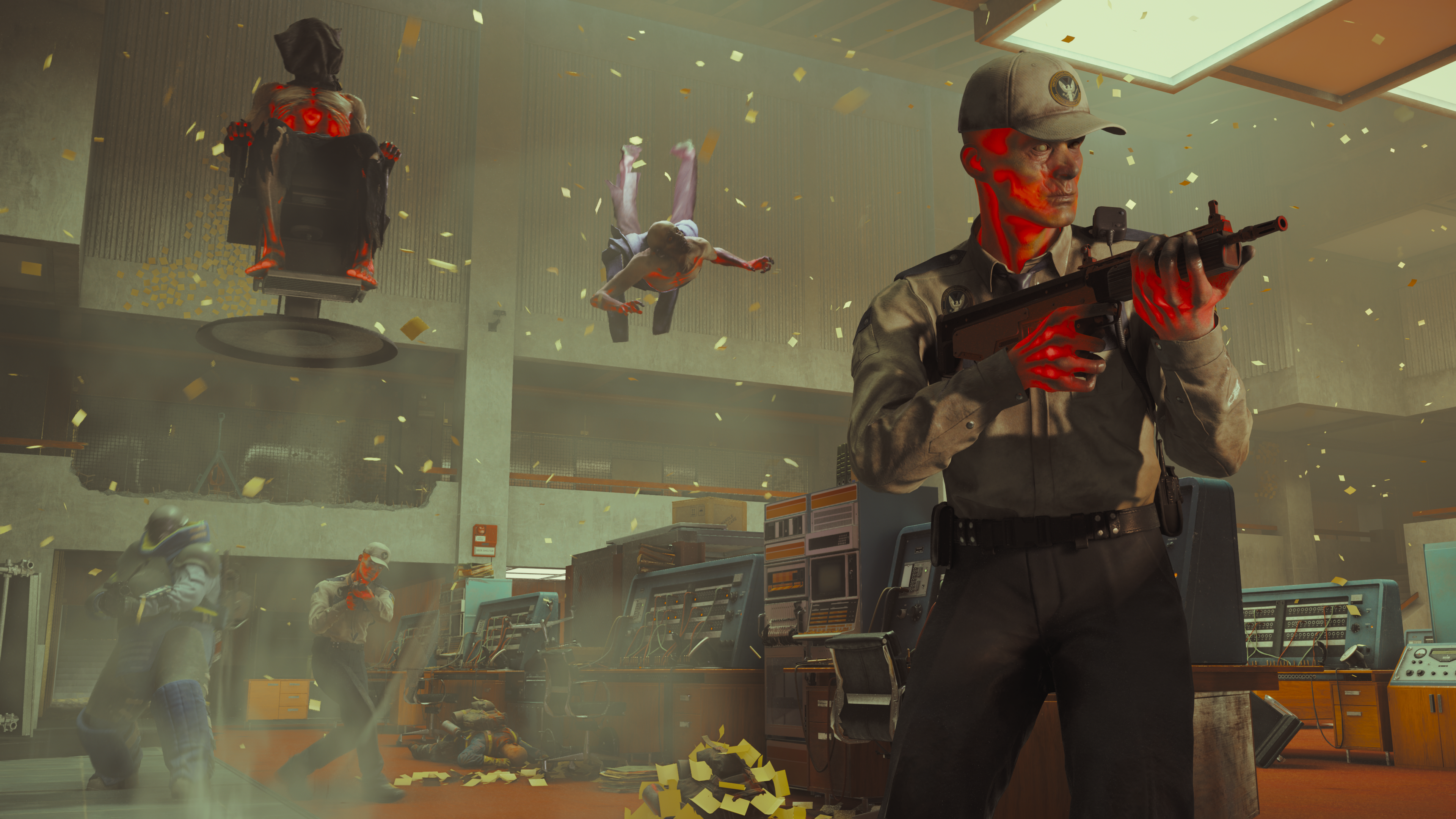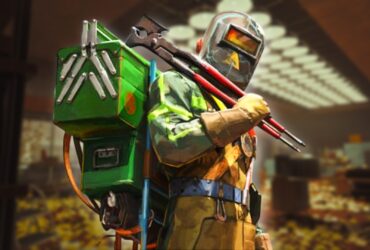Last week, Remedy Entertainment invited me to an early look at FBC: Firebreak, the upcoming three-player online co-op shooter Control spin-off. I have to admit, when I first heard about Firebreak at Xbox’s Partner Preview showcase last year, I was disappointed.
Remedy is a studio I have a great deal of admiration for because of its many contributions to video game narrative experiences, and I hate to see it chasing live-service trends like so many other great studios before it. The world doesn’t need another Suicide Squad, Resident Evil Resistance, or Horizon Online, but it does need more of the kinds of games Remedy does best.

Related
How Can Remedy’s Multiplayer Shooter Thrive Under These Conditions?
A live-service game is a live-service game, regardless of how cool FBC: Firebreak looks.
Now that I’ve heard more about what Firebreak actually is from game director Mike Kayatta, I’m confident my fear of watching one of my favorite studios get trapped in the games-as-a-service machine is unfounded. FBC: Firebreak is an online co-op game, and it will be periodically updated with new content, but its creators are resolute that they have no interest in building the kind of grindy, FOMO-driven forever game that dominates the live service market. Instead Remedy is taking an old-school approach to multiplayer and monetization, going back to a time before battle passes and daily log-in bonuses. Back to a time when we played games because they were fun.
Give The Hiss A Dose Of Their Own Medicine
That approach is either going to make FBC: Firebreak refreshing and novel, or dated and stale, but given Remedy’s penchant for creating captivating worlds, I’m leaning towards the former. To further reinforce the old-school appeal of Firebreak, it strongly resembles one of the most popular co-op shooters of all time: Left 4 Dead. That’s the game it’s going to constantly be compared to going forward, so we might as well start now.
Firebreak is set six years after the events of Control, as the FBC continues its ongoing resistance to the Hiss invasion in the Oldest House. While the lockdown persists, director Jesse Faden creates the Firebreak Initiative: a team of volunteer FBC employees, with little to no combat training, assigned to manage various crises created by the Hiss throughout the Oldest House. What could possibly go wrong?
Each mission, called a job, will take a team of three players into a unique environment within the Oldest House to face a crisis and complete an objective. I got a chance to see a playthrough of a job called Paper Chase, which is all about a rogue sticky note calamity. As the team fought their way through the Hiss they also had to contend with self-multiplying sticky notes that threatened to fill up the building if not controlled. The notes would stick to their faces and obstruct their vision, and at the end of the job, the squad had to dispatch a massive sticky note golem. This may not sound like a Remedy game at first, but I assure you, it very much looks and feels like one.
Firebreak Won’t Need Log-In Bonuses To Keep Players Engaged
The team talked a lot about creating variety through emergent moments in order to give players a unique experience every time they play. One way it will allow for this is through its Threat Level and Clearance Level System, which you’ll decide on with your team once you’ve selected a job. Threat Level refers to the combat difficulty and the reward you’ll earn. Higher threat levels will introduce more Hiss, different types of enemies, and fewer resources among other things.
Clearance Level determines how many zones you’ll have to clear to complete the job, too. Each job consists of three zones, and the more you take on, the longer your session will be and the more rewards you’ll earn. Kayatta emphasized the huge number of variables in each job that are designed to lead to unique memorable moments, using for example healing stations, which can become rarer and more difficult to locate as you progress through each zone.
Other systems will be familiar to fans of the co-op shooter genre. Crisis Kits are saved loadouts that determine which tools and items you’ll start a job with, as well as the general playstyle you’ll use. There are sort of like classes, and there’s some pretty interesting ones. My favorite so far is the Splash Kit, which equips you with a water cannon for putting out fires and soaking enemies to make them vulnerable to shock damage, as well as a humidifier that will heal everyone within its proximity.
There’s also a perk system that will let you further customize your playstyle. You’ll unlock new perks as you complete more jobs.
Remedy Doesn’t Want To Compete With Your Hobby Games
Without getting hands-on, there isn’t too much more I can say about the gameplay at this point, but I’m inspired by Remedy’s mission to make a casual co-op shooter in today’s market. The studio says it doesn’t want Firebreak to be a game you grind endlessly, but rather something you play with your buds when you have an hour or two to kill. It’s committed to releasing all post-launch content for free so as not to split the player base between the haves and the have-nots, and it promises only to monetize cosmetics.
I know we’ve heard it all before, but Remedy has earned the benefit of the doubt. The real question is whether a paid online co-op game can succeed in today’s market. As much as people complain about live service games, they’re making all the money and taking up all of our time. Remedy can say Firebreak isn’t trying to compete with Marvel Rivals and Apex Legends, but at the end of the day, people only have so much time to play games, and the ones that punish you for missing time on them make a pretty compelling case to be chosen.

- ESRB
-
T For Teen // Violence, Blood













Leave a Reply